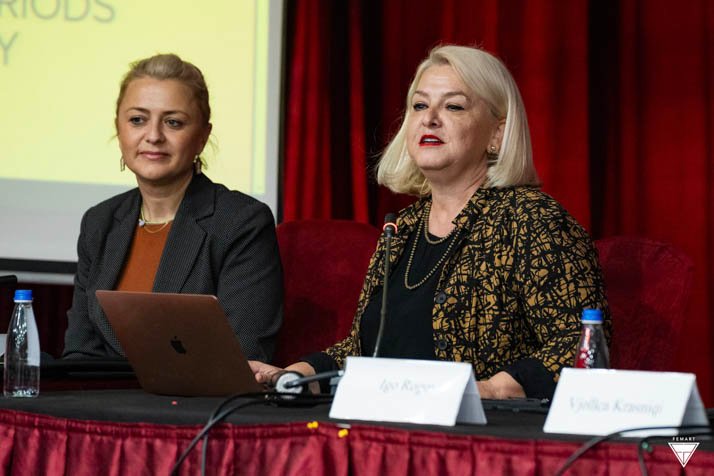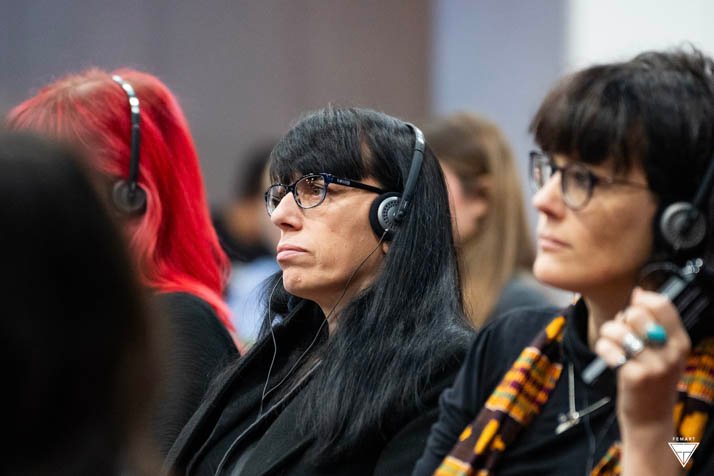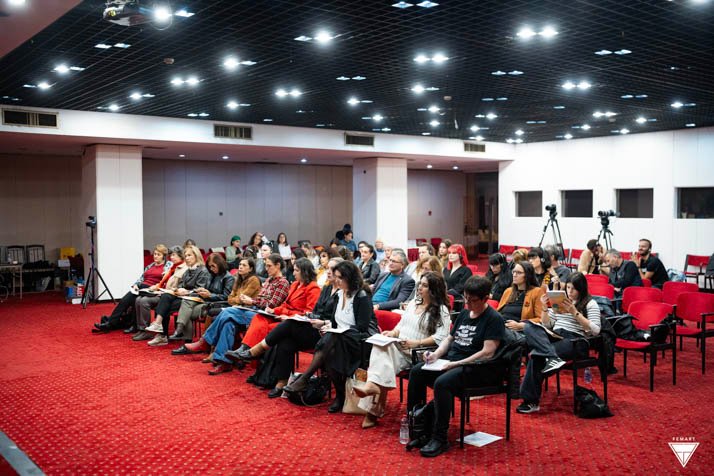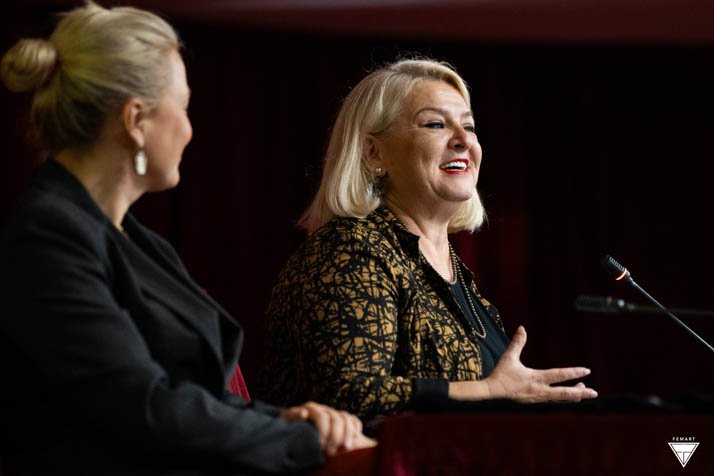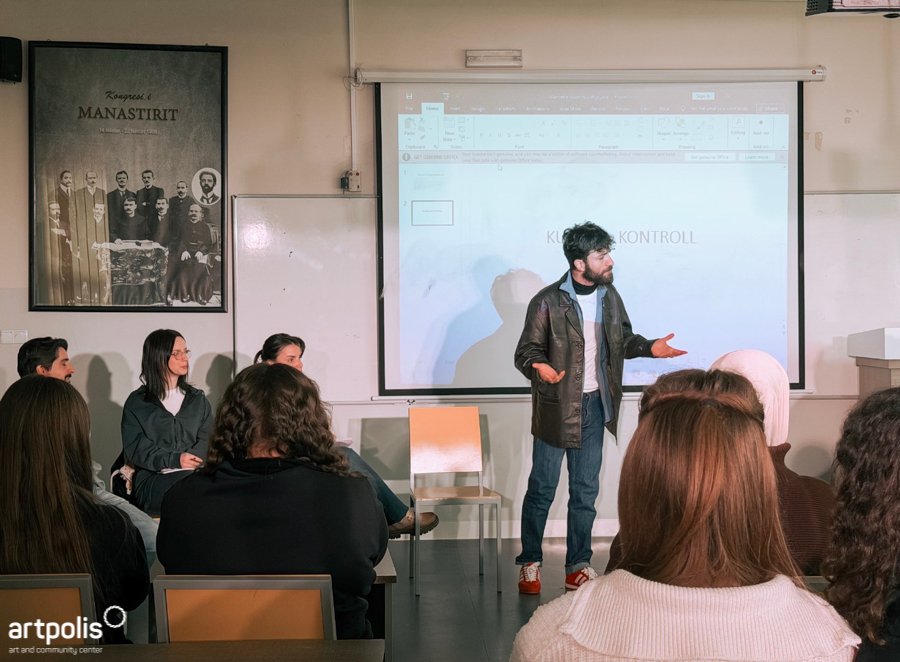
“Behind the Screen” in Vushtrri Highlights the Phenomenon of Online…
February 12, 2026
September 30, 2024
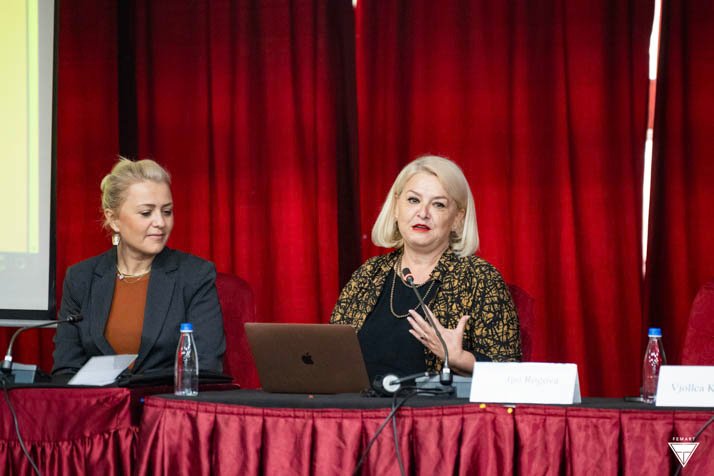
30.09.2024
The Peace Conference ‘Sisterhood: In Times of War and Peace,’ which took place on the 30th of September at the 12th edition of the FemArt Festival, brought together activists, artists, and key stakeholders to discuss the role of activism in promoting peace in the region. Held at the Grand Hotel in Prishtina, the conference gathered around 50 people in the audience. The conference was opened by Zana Hoxha, who emphasized the importance of this event and highlighted the significance of sisterhood in the times we are living in.
Before the discussions in each panel began, the research titled “Tranquility amid diversity: Exploring Peaceful Periods in Kosovo’s History – After the 1974 Constitution” was presented by the author, Valdete Idrizi.
She explained that the main goal of this research is to make a meaningful contribution to the ongoing discourse on achieving peace and fostering sustainable development in post-conflict regions. She further emphasized that by deepening the study of the peaceful period in Kosovo’s history within Yugoslavia, society can draw valuable lessons for transformative processes that occur when a society emerges from destruction and conflict and begins the path of change and reconciliation. The findings of this research will enrich existing knowledge and could help shape strategies for peacebuilding and sustainable development in other regions trying to recover from conflict. During her presentation, the author also highlighted the role of women during the period the research focuses on.
“The role of women was evolving both in public and private life,” said Valdete Idrizi. “For many women, the challenges of this era—patriarchal limitations, lack of access to education, and political repression—were deeply intertwined with the broader struggles of the Albanian community. Women were discriminated against not only as women, but also as Albanians.” She emphasized that despite these obstacles, women managed to create their own paths toward progress, fighting for education, taking on leadership roles in both families and society, and making significant contributions to preserving cultural identity.
The author also raised the issue of the lack of recognition for women’s contributions in historical narratives, highlighting the importance of acknowledging these efforts. She pointed out that the names of women who contributed significantly, such as Exhlale Dobruna Salihu and Kaqusha Jashari, are included in this research, serving as an inspiration for future generations. Finally, the author presented the recommendations of young people and activists who were interviewed during the research.
Further empowerment of peace education, integration of peace courses in schools, training for teachers, inclusion of women in mediation processes, the use of art, support for artistic projects related to intercultural dialogue, interethnic dialogue, creation of safe spaces, addressing historical narratives, countering structural violence, strengthening a culture of peace, support for transitional justice, engagement of young people, expansion of educational programs, creation of opportunities for young boys and girls in political processes, and the sharing of positive stories, were some of the recommendations arising from this research.
Regarding the development of critical thinking among young people, Valdete Idrizi mentioned that during interviews, many participants referenced exchange programs organized by Artpolis as a starting point in fostering activism and critical thinking among these young people.
This research was conducted as part of the project ‘HOPE – History of Peace for Education through Theatre.’ This project is funded by the European Union through the ERASMUS+ program and is implemented by: Dah Teatar, Artpolis – Art and Community, @actionsynergygr, World Vision Bosna i Hercegovina, @theatroaeroploio, @nvo_prona.
